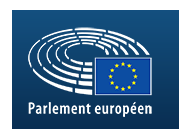Document type : Written answer from the European Commission
Authors: Question: Harald Vilimsky (ID). Answer: Ms Kyriakides on behalf of the European Commission
Question: Animal transports in non-EU countries
Hearings of experts in the Committee of Inquiry on the protection of animals during transport (ANIT), at which Commission representatives were also present, uncovered some interesting facts which raise further questions.
The experts highlighted a relative lack or even total absence of animal welfare standards during live animal transports from the European Union to certain non-EU countries and that conditions in many of the latter are dreadful. They said that transports to non-EU countries were not conducted in line with the relevant regulation, as the welfare and care of the animals could not be guaranteed and the transports should therefore be considered illegal.
Why does the Commission not therefore immediately ban all transports to such countries?
The experts also stated that many vehicles do not satisfy the requirements in relation, for example, to watering and feeding the animals.
Why then are long-distance transports using such vehicles not immediately banned?
If the Commission is aware that many Member States fail to comply with the rules in force, why are more stringent sanctions / more thorough checks not enforced?
Answer: The Commission is aware that transport over long journeys, especially when part of the journey takes place in non-EU countries may be problematic. In recent years, the Commission has focused on assisting Member States to improve the condition of animals exported to non-EU countries.
The current animal welfare legislation does not provide the possibility for the Commission to ban the export of live animals outside the EU. However, exports to third countries should be carried out in compliance with the relevant EU legislation. Member States competent authorities remain primarily responsible for ensuring that each such transport operation complies with the EU requirements.
The Commission has helped Member States improve the implementation of EU legislation. As a result, for example, the number of animals exported by road to Turkey during the hottest period of the year has been reduced significantly. The Commission is also working on a project to improve the inspection of livestock vessels.
In parallel, in the context of the Farm to Fork Strategy, the Commission will revise the EU animal welfare legislation including on animal transport drawing lessons from the experience with the application of the current rules and taking into consideration the latest scientific evidence.





